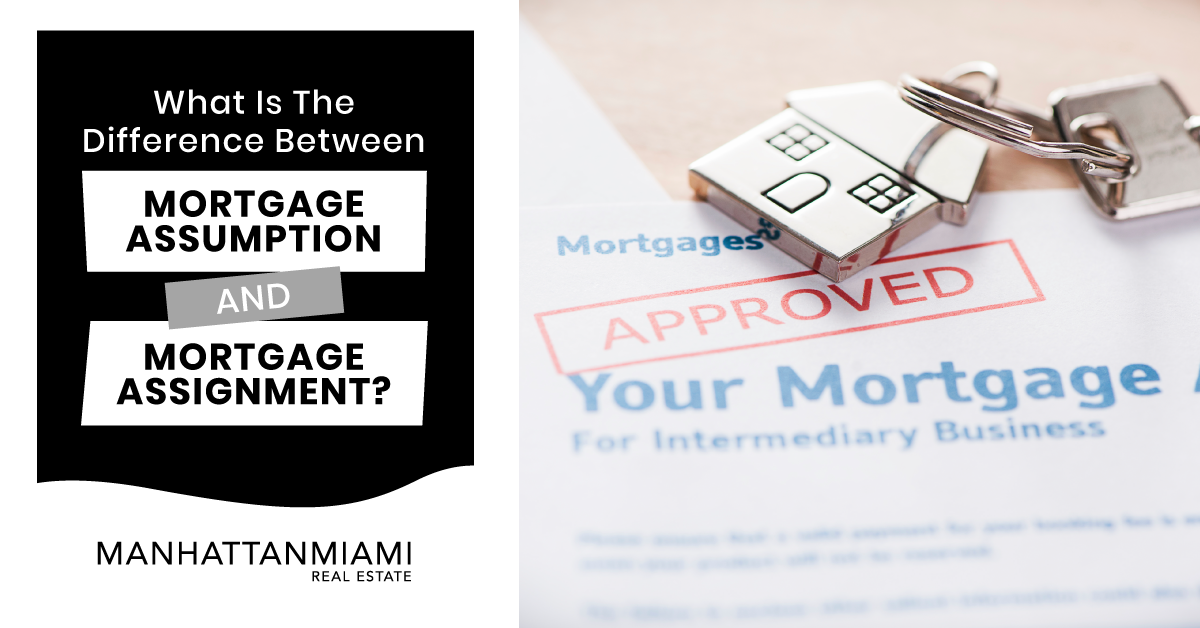
Most people who buy a home need a loan to help pay for it, and the type of loan that you get can impact how much money you pay in total for your home. Two options are to get either a mortgage reassignment or mortgage assumption. While they might sound similar, these two loans are quite different, with mortgage reassignments being much more common now than mortgage assumptions. In fact, you might be surprised that mortgage assumptions even exist because they're so rare. While mortgage assumptions hold significant advantages over the more common mortgage reassignments, CEMA loans can simulate some of the benefits that are lost when you get a reassignment loan over a mortgage assumption, but you might have to make a decision between whether you value getting a lower interest rate or getting the benefits of a CEMA loan. Learn more about your options when buying a home in New York by learning the terms.
What Is a Mortgage Assumption?
You might not know that a mortgage assumption is even possible let alone that it used to be the more popular way of buying or selling a house. When there's a mortgage assumption, the buyer essentially takes over the loan from the seller, including all of the terms that the original borrower set up. This means that the buyer is essentially paying the bank the remaining amount for the seller, and the buyer keeps the interest rate. This is important to note because the buyer won't have to pay the interest on the original, whereas they would have to pay the interest on a new loan.
What Is a Mortgage Reassignment?
In contrast, a mortgage reassignment is when the buyer of a home takes on a new loan with its own terms from a bank. This option is much more common today, partly because the bank isn't usually excited to take on a mortgage assumption. Banks don't like this option for a couple of reasons, including that they don't collect the interest amount that's paid at the beginning of the loan, so there's little incentive for a bank to agree to a mortgage assumption. Another reason that banks prefer a mortgage reassignment over a mortgage assumption is that they only want to take on a new borrower who has the same or better likelihood of paying off the loan. The lender will assess whether or not this is true based on the buyer's credit history and other financial factors.
Benefits of Mortgage Assumptions for the Buyer
One of the biggest advantages that a mortgage assumption can hold for a buyer is the lesser amount of interest that you have to pay on the loan. Another benefit is that you get to cut out a lot of the mortgage recording taxes that you would normally pay on a brand new loan or a mortgage reassignment. When you get a mortgage assumption, you're only paying the mortgage recording taxes on the remainder of the loan.
How a CEMA can Help Condo and Townhouse Buyers
A CEMA (Consolidation Extension and Modification Agreement) can help people in New York who want to buy a townhouse or condo save a lot of money. This type of loan helps people who are financing a new purchase or getting a refinance on an existing home by working around the mortgage recording tax, which is a tax on the total loan amount. At a rate of 1.8% for loans under $500,000 and a rate of 1.925% for loans over $500,000, the mortgage recording tax can add on thousands of dollars that you have to pay. What makes the mortgage recording tax really expensive is that you essentially have to pay it twice if you refinance your home. But if you use a CEMA loan, you only pay the tax on the gap between the two mortgages.
Why Are Mortgage Assumptions and Mortgage Assignments Confused?
If you wonder why two terms that mean very different things are often confused, you're not alone. Because mortgage assumptions are so rare, people in the real estate industry have started to use the two terms interchangeably. The reason that they're so rare is that banknotes are currently being written to make mortgage assumptions unavailable in the event of a sale of the home. It's simple to understand because banks don't gain anything when there's a mortgage assumption. In fact, they lose out on the interest that a new loan would bring in, so in the last couple of decades, banks started writing loans so that mortgage assumptions aren't possible.
Getting a CEMA Can Take a While
Recently, because there have been so many homes being sold, getting a CEMA can take some time, and you could lose the original loan rate that you were hoping for when you wait to get a CEMA loan. Giving CEMA loans doesn't impact the bank's bottom line, but you'll have to wait longer right now because there also isn't any incentive for the bank to give these types of loans. In fact, they're more of a courtesy than anything else, so the banks don't work very hard to get them done quickly, especially when they're backlogged with other work. If you want a CEMA loan that could save you money on the taxes but you also want the lowest interest rate possible, you might find it tricky right now. Because interest rates are rising, you have to decide whether it's worth it to wait for the CEMA to go through so that you can avoid the extra mortgage recording taxes even though you might lose the lower available interest rate if it goes up quickly.
If you're going to be buying or selling a house, explore your options so that you can get the best financial deal possible for yourself. There are plenty of homes for sale in NYC for the right buyer, but you have to do your homework to ensure that you don't miss out on a deal that could affect your finances for years to come.

-2.png?width=500&height=205&name=MIAMI%20HOME%20SEARCH%20(2)-2.png)













